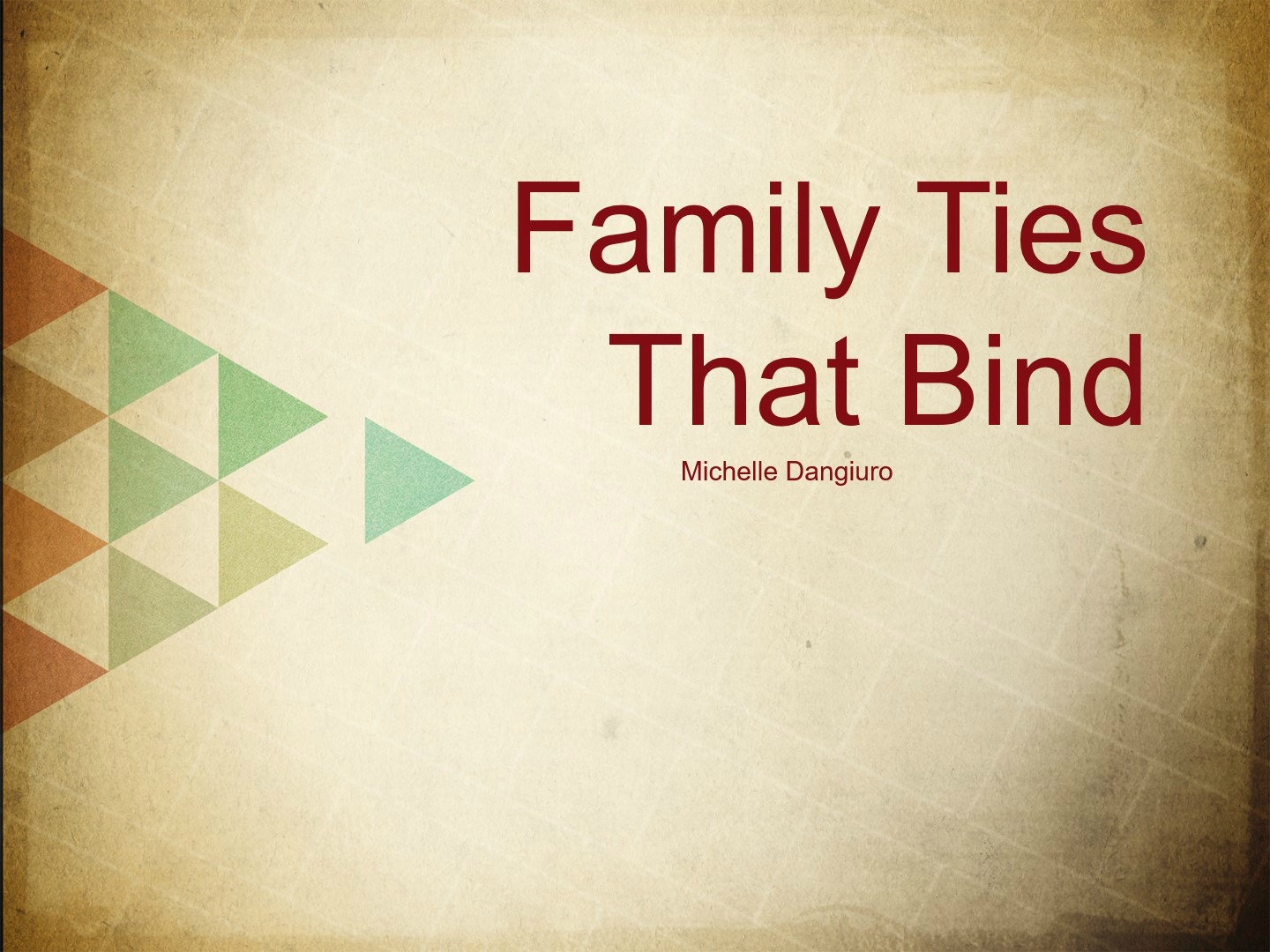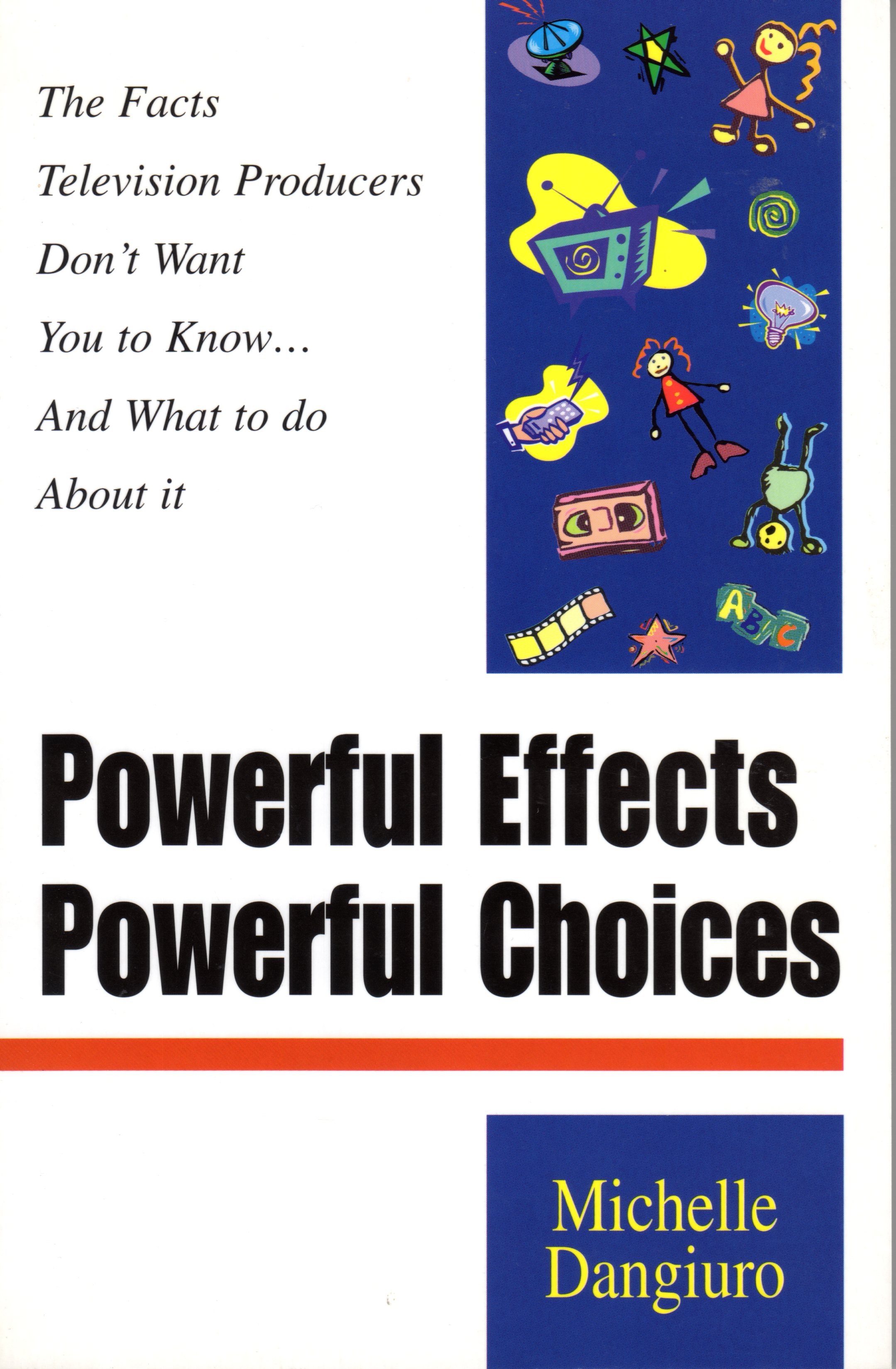Some fun activities are just empty experiences while others add to us; they build us up on the inside while entertaining us on the outside. We all need fun the way we all get thirsty and need a drink. The difference comes in the choices we make: are we going to grab juice or will we pop open a can of artificial fizz? The same principle applies to the activities we engage in, especially family activities.
By Michelle Dangiuro
To View the Entire Article, Click Here
To Download the Article Directly to Your Computer, Click Here
To View the Outline, Click Here
To View the PowerPoint, Click Here
“When you are old and facing oblivion… you are not going to wish you had spent more time at the office…or watching a show. You will wish you had spent more time with your family.”
-Ben Stein, in his book Tommy and Me
There was a time when television was a family affair. But even when television brought the family together in one room, it really never brought the family together. The relationships being formed were individual, one-way relationships with an electronic box. The only eye contact being made was with the “one-eyed monster.” The emotions displayed were prompted by people who weren’t even in the room. Together, yet separate.
When I was growing up we had television, and because of it, there was very little physical contact between anybody in the family. If there was, it was a _fight over a seat in front of the tube. I think about it now and think; what a loss. We could have learned so much about each other that we just never learned. Television hasn’t been there to hinder us from really getting to know each other in my family now. When we’re home, our evenings are wrestling on the floor with the boys or reading stories. Either we read to the children or our oldest son reads to us. We’re always in the living room in the evenings until bedtime, and we’re always together.
-Lorraine, mother of three
Now, families with multiple sets, cable, and video don’t even sit together in the same room anymore. Program preference overrides the pretense of family bonding via satellite and everyone scatters to enjoy the “family hour” alone. This is a teenager’s dream come true, right? Maybe not.
Television is one of the worst things that has happened to my family. We eat dinner in front of the TV, and if there’s any conversation, it’s mostly about the evening news. We have four TV’s, and at night everyone watches their own. I want to talk to my parents, but I can’t when they’re watching TV. Especially my dad. And if he’s not watching TV, he’s watching a movie he’s rented. I hardly know him.
-Sandi, a teenager
A common complaint of parents is that their teens won’t communicate with them. Many of these same parents are so addicted to the TV themselves that they don’t even realize the precious time they’re losing with their children, let alone the feelings of rejection and neglect being stored up in these fragile hearts. What heart break to be displaced by an electronic box. And what is the message being broadcast from parent to child? This program I’m watching is more enjoyable and more important to me than you are.
You D’man, Dad
You are important, Dad. How important? Research shows that:
- Kids without the influence of a father won’t learn or earn as much.
- Children without the influence of a dad won’t obey the law as much, stay married as much, and be there for their own kids as much.
- Students are half as likely to have repeated grades if their fathers were highly involved in their schools (high involvement is defined as participating in at least three of the following four activities: serving as a volunteer, attending school meetings, participating in parent-teacher conferences, and going to class events).
- Half of students get mostly “A” grades when their fathers are highly involved in their schools as compared to one-third of students whose fathers are not highly involved.
- Children of highly-involved dads are more likely to participate in extra-curricular activities and enjoy school.’
- Boys whose fathers read to them score significantly higher in reading achievement.
- Fathers who read recreationally have sons who read more and score higher than boys whose fathers do little or no recreational reading.’
To View the Entire Article, Click Here
To Download the Article Directly to Your Computer, Click Here
To View the Outline, Click Here




